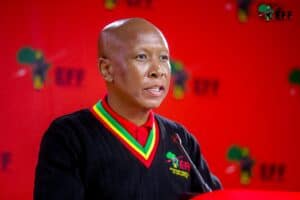South Africa has become the fourth country in Africa to recognise sign language as an official language.

A professor and director at the Centre for Deaf Studies at the University of the Witwatersrand said sign language becoming an official South African language is the fulfilment of a fundamental human right of persons who are deaf and hard of hearing.
Sign language became the 12th officially recognised language in the country after President Cyril Ramaphosa on Wednesday signed into law the South African Sign Language Bill during a ceremony at the Union Buildings in Pretoria.
The National Assembly on 2 May 2023 approved Section 6 of the Constitution be amended to include South African Sign Language (SASL) as an official language to promote the rights of persons who are deaf or hard of hearing.
Rights of deaf people
Dr Claudine Storbeck from the Centre for Deaf Studies at Wits University said SASL becoming an official language is an important step towards the realisation of the rights of persons who are deaf or hard of hearing.
Storbeck said SASL is a visual gestural language and deaf people cannot access any of the other 11 official languages because they are spoken oratory languages.
“Deaf people have never been able to access any of the spoken languages. So, this is the first time in South Africa that they’ll be able to access key fundamental human rights, public health, the justice system and any of the public services in their own language that is accessible. That makes it so fundamental.”
The most recently available figures, quoted in a 2012 research article, suggest that in South Africa as few as one in three deaf adults who use SASL is functionally literate and the average deaf school leaver has a written language comprehension ability equal to that of a hearing child of eight.
ALSO READ: EXCLUSIVE: Andiswa Gebashe opens up about Sign as SA’s 12th official language
Responsibilities
Storbeck said there will be a responsibility on learning institutions, organisations and even companies to accommodate deaf people.
“We are happy for it not be an official language in every language in every single little university because it’s the country’s official language.
“But the responsibility now sits on every other organisation. If a deaf person comes and says I want to study, I want to work here, then South African Sign Language becomes available for them through sign language interpreters, even its just for meetings if you are an employee and through interpreting if you want to study,” Storbeck said.
Learn to sign
Storbeck adds that while people celebrate sign language becoming an official language, they should also start learning to sign.
“It’s not just learning a South African language because it’s a nice to have… all businesses, institutions, public organisations and government departments need to commit to at least training one to two people every quarter so that they can start building a cohort of people that can communicate with deaf people,” Storbeck said.
With this initiative, South Africa becomes the fourth country in Africa to recognise sign language as an official language. The other countries are Kenya, Zimbabwe and Uganda.
ALSO READ: National Assembly passes bill to recognise sign language as SA’s 12th official language






